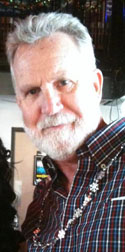Telecommunicator Spotlight: Philadelphia Dispatcher Jim Eibell
With 43 years on the job and a plan to retire in two years, Jim Eibell, 60, a Philadelphia communications dispatcher, considers himself an “old timer” in the communications arena of the Philadelphia police department. When he graduated from high school he was interested in joining the police department, but at the time there was an opening for a police dispatcher position and he applied for it. He was accepted and says he began the job as a naïve, shy young man at age 17—he’s been there ever since.
When Eibell first started working at the police department, the radio room had just been placed at headquarters. He admits that, at the time, the job was a lot of fun. Ball teams were created and colleagues partied together. “Going to work was like going to hang out on the corner,” Eibell says.
Beyond the fun that can be found, Eibell says he loves when things are busy and when there is action. “Your adrenaline starts to flow and I know I can handle it,” he says. The “radio family” works closely together during holidays and the summer. “We’re a pretty tight group. We take care of each other,” Eibell says.
He identifies some skills that are important for both calltakers and dispatchers to possess. They must have the ability to let the anger and frustration of callers bounce off of them. Because everyone who calls thinks there is an emergency taking place, it is important to deflect that impact. He points out that it is vital to recognize that people are in need and, therefore, good listening skills must be employed. In addition, an individual must be able to handle air traffic and multi-task. He emphasizes that officers should not be permitted to take over the air. “The dispatchers get overwhelmed if officers take over. Keep the radio pace at your pace and not at their pace,” Eibell says.
Throughout his career, Eibell has handled high profile cases and taken them in stride. He has dealt with all types of incidents from floods to shootings. He says each call is just another incident until it escalates into something bigger. He has worked a number of incidents where police officers were killed in action, and he has experienced the panic and pandemonium that sets in when an officer is killed.
One of the most stressful incidents of his career took place in 1985 and involved the radical group MOVE. He recalls a block on Osage Avenue was bombed by police and he could hear rapid gunfire. The end result was that six adults and five children were killed.
He also recalls the disbelief and horror he felt on a call in 1987 from a woman who escaped from the basement of the home of Gary Heidnik after being held captive. Heidnik kidnapped, tortured and raped six women and tied them to basement pipes in his home. He had dismembered a woman and placed her frozen body parts in his refrigerator. “That I remember. It was so atrocious,” Eibell says.
Eibell has found ways to deal with the impact of stress from his job. He describes himself as a jokester and likes to crack jokes to relieve stress. He also enjoys doing crossword puzzles. He is a big movie collector, watches sports, plays tennis and plays video games with his son.
Eibell has had a successful career for over four decades. He received the “Dispatcher of the Year Award” in 2007 from the Police Radio Advisory Board.
He admits that in his long tenure on the job, there’s is much more of a technological emphasis than in the past. “This job has changed so much over the years. I don’t think Philadelphia dispatchers get enough credit,” Eibell says. In the past, he says it was a lot easier to stay on the job than it is at present. “There is no upward mobility,” he says.
Eibell looks forward to retiring in two years. Meanwhile, with a plethora of experience, he continues to provide a valuable public service in Philadelphia.
About the Author
Karen L. Bune serves as an adjunct professor at George Mason University and Marymount University in Virginia, and is a consultant for the Training and Technical Assistance Center for the Office for Victims of Crime and the Office of Juvenile Justice and Delinquency Prevention, U.S. Department of Justice. She is a nationally recognized speaker and trainer on public safety issues. Bune is Board Certified in Traumatic Stress and Domestic Violence, and she is a Fellow of The Academy of Experts in Traumatic Stress and the National Center for Crisis Management.


